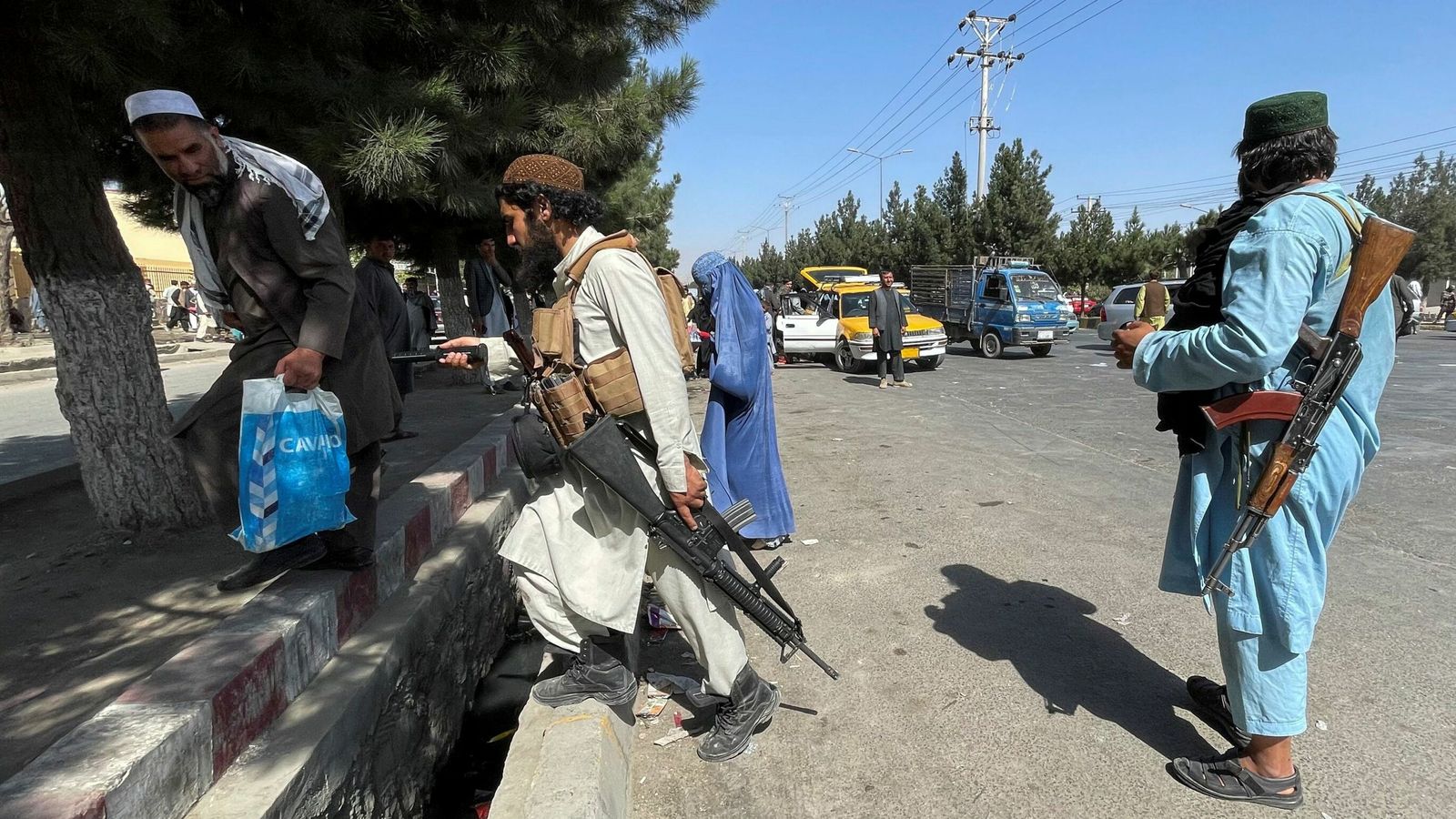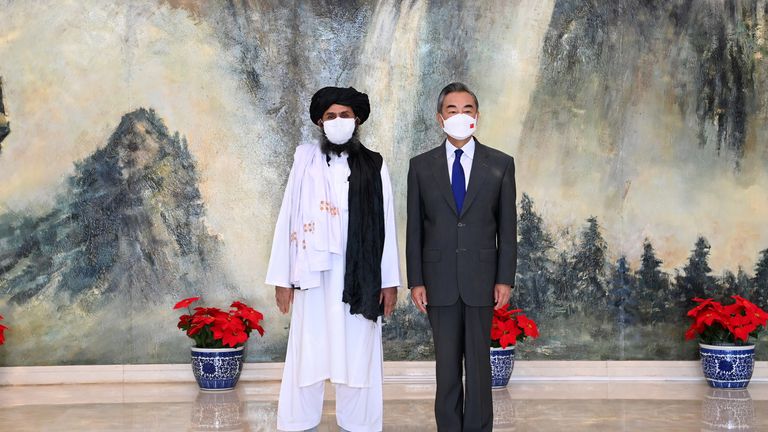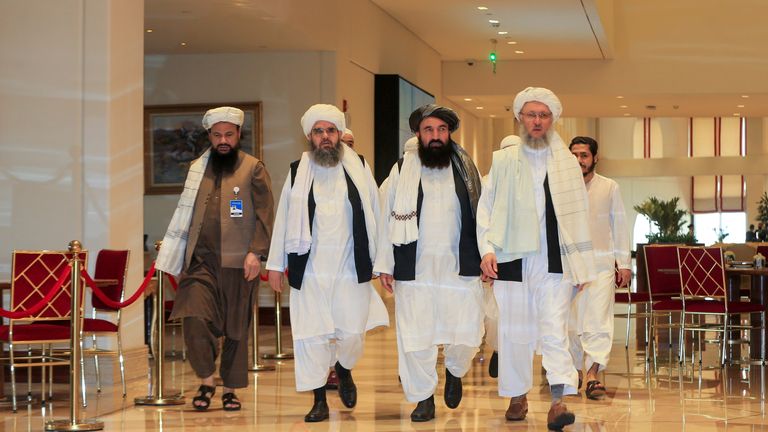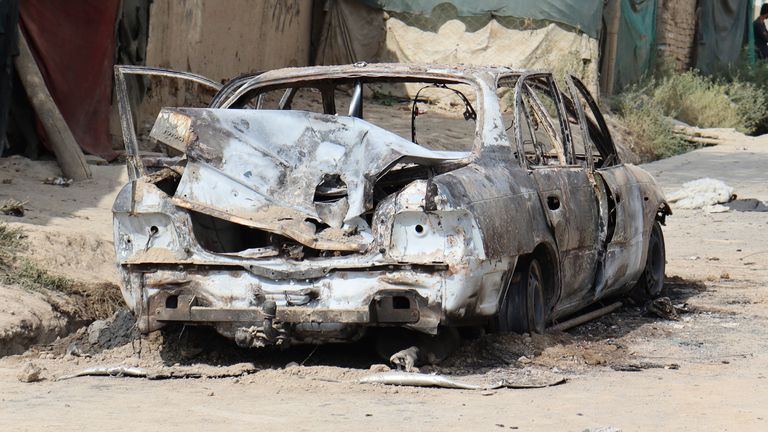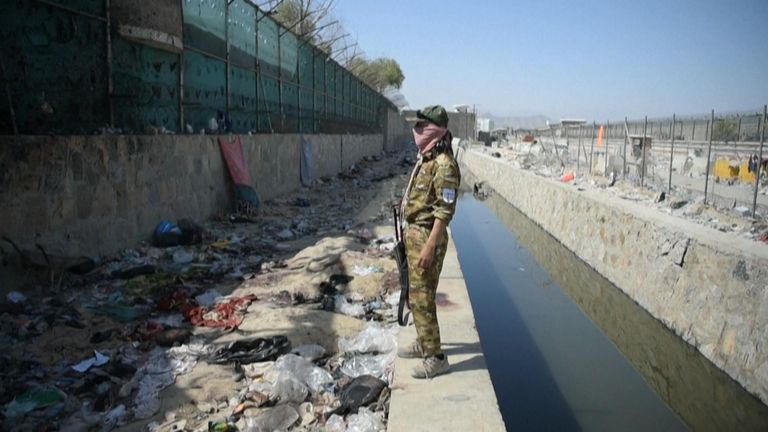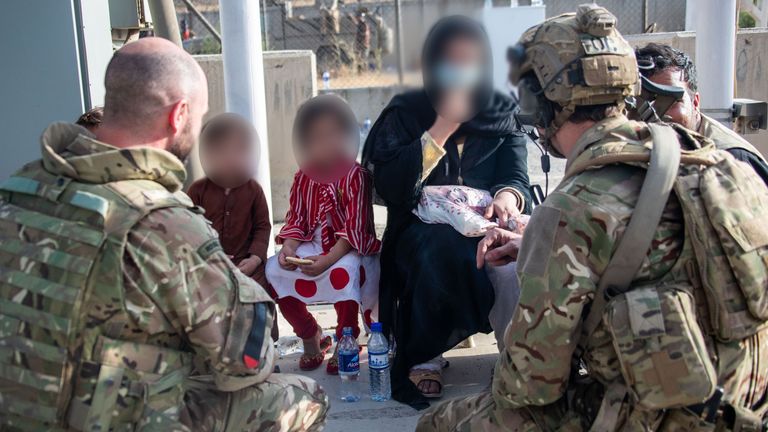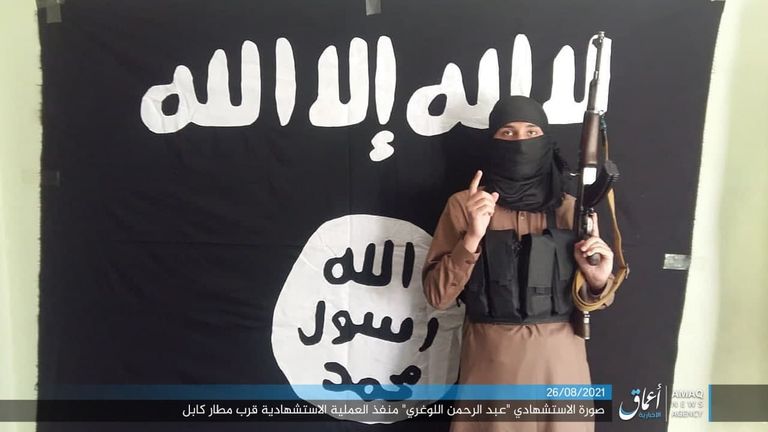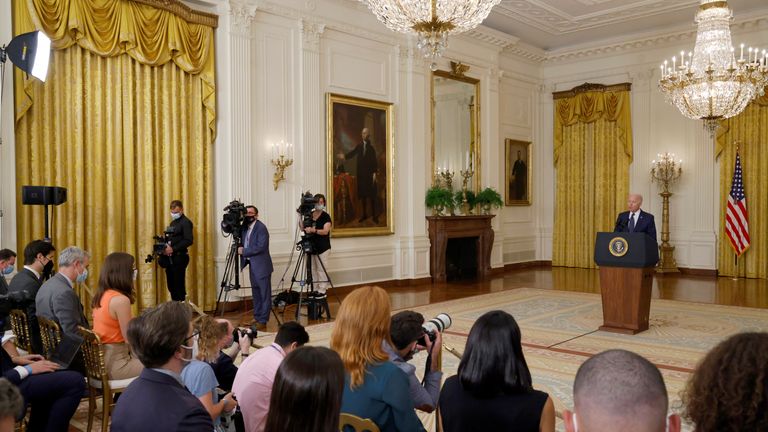Since the Taliban took control of Afghanistan the focus has been on the evacuation effort, as people scramble to leave a country which has been grappling with war for two decades.
Western forces have now left the country and thoughts will turn to what a post-Western Afghanistan will look like, with the Taliban in control.
In the short-term, neighbours will be watching, hoping for stability and the Taliban will be hoping for international recognition as they seek to establish a government after 20 years in the wilderness.
There will be much soul-searching in Washington, London and other NATO capitals as the fallout of the last few weeks is scrutinised.
But in the cities, mountains and deserts of Afghanistan and Central Asia, the attention will turn to writing the history of the fallout of the Taliban’s victory.
Afghanistan, and the wider region, is a different place compared to 2001 when the US military intervention began after 9/11. The US had issued a threat to Pakistan at the time, telling it to sever ties with the Taliban or be treated like them by US forces.
It has never been clear whether Pakistan complied with this threat but Pakistan, like China and Iran, will be a key player in Afghanistan’s future simply because of their proximity.
All of Afghanistan’s neighbouring countries will react to the developments in the last week; Iran shares a long border with western Afghanistan; China has a comparatively small border to the northeast; while Tajikistan, Uzbekistan and Turkmenistan are to the north.
Could ISIS Khorasan cause a civil war?
Dr Afzal Ashraf, a visiting fellow at the University of Nottingham, suggests Afghanistan could be better without a US military presence in its territory.
“Over the last 20 years, the West has constantly indicated a complete lack of cultural and strategic intelligence. The West fails to understand that the Taliban came into existence to fight corruption, and it instead installed a government in a position that is known to be corrupt,” he told Sky News.
There is a concern from neighbouring countries that the Taliban could spread instability into its borders and Afghanistan slides back into a civil war.
Samir Puri, a senior fellow at the International Institute of Strategic Studies, believes the US military has taken the “brunt of the instability and with the US departure there will be an onus on the region to take the stability”.
“Many of these neighbouring states are in antipathy with the US, not a single one hosts a US military base,” he told Sky News.
“In the medium-term, the Taliban and Afghanistan’s neighbours all have the incentive to allow ISIS not to use Afghanistan as a breeding ground for extremism. They should work together; it would be smart for the Taliban by helping to not export the violence.”
In varying degrees, Tehran and Beijing are each in dispute with Washington and even the government in Islamabad has grown weary of the US.
Prime Minister Imran Kahn was critical of the US last week when he said: “Pakistan is just considered only to be useful in the context of somehow settling this mess which has been left behind.” And Mr Puri suggests a “US failure is going to be a good thing” for the region.
But for all the neighbouring countries, the immediate worry could be one of civil war. ISIS Khorasan, who claimed the attack outside Kabul airport on 25 August, are sworn enemies of the Taliban and have a vested interest in stopping and disrupting the Taliban.
The ISIS-K attack killed 182 people, including 169 Afghan civilians and 13 US service members.
In response, the US launched an airstrike against what the US military said was a vehicle carrying three ISIL-KP members and another drone strike was carried out on 29 August – allegedly killing 10 members of a family, including children.
But Dr Ashraf believes the threat of a civil war caused by ISIS-K is low. He said: “I doubt there will be a civil war because ISIS-K is too small in number and too dispersed for anything that can be identified close to a civil war.
“The only part of Afghanistan where they have a significant rebellion involving fighting is in the Panjshir Valley and even that cannot be called a civil war.
“It would be interesting to see how the Taliban deal with ISIS. They potentially have the ability to deal with them more effectively than the previous government supported by the CIA and other western agencies. They will be keen to eliminate ISIS, but it is less certain as to how and when they can achieve that.”
While stability is uncertain, the Taliban should focus on its economy
In the short-term, the region’s focus, and that of the Taliban, will be on security but the new leaders will need to look at rebuilding the economy, something that will require corporation and support from its neighbours.
Dr Ashraf said: “The Taliban are hugely dependent on international support. What they are saying is our ‘country boys’ are great at facing and firing bullets, but they can’t do much anything else.
“That’s why they want a representative government and want to retain as many people as possible in government and elsewhere.
“What is different is they are a little more serious and savvier about the fact they won’t be able to live only on handouts, like the previous government.”
Given 20 years of war, it is going to be politically difficult for the western governments to be seen to be funding and supporting a Taliban-led government, even if they wanted to.
They could indirectly provide assistance through the significant work of the United Nations in the country but it is likely that most support comes from other sources in the region.
“They will want to invest any support on becoming self-sufficient. They could possibly have some investment from Qatar and other Middle Eastern governments for economic and social development,” Dr Ashraf adds.
Unlike in 2001, the region has greater corporation capability through the multinational Shanghai Cooperation Organisation (SCO).
All but one country, Iran, hold membership status to the SCO and at the latest summit in July 2021, the instability in Afghanistan was discussed.
Afghanistan has held observer status since 2012, and while formal membership may be delayed, it offers a diplomatic mechanism to coordinate a regional response to the ever-changing realities of Taliban rule.
The SCO was formed in 1996 as a reaction to the civil war in Afghanistan and the dissolution of the USSR.
It offered ways to foster economic cooperation in the region for its founders China and Russia, as well as a way to track security threats.
While the SCO will look at how they can help the Taliban bring stability, Afghanistan’s neighbours will have their own bilateral responses.
China’s foreign minister met with representatives of the Taliban earlier this week and according to Dr Hongyi Lai, an associate professor at the University of Nottingham in China, Beijing will “see it as a positive development”.
“They [China] will be aware of the political and security challenges for them but it is an opportunity for China to play out its influence with the Taliban as a diplomatic tool with the US and Joe Biden,” he said.
“They will use it as a bargaining chip and initially the Taliban will need to gain international recognition with the help of China.
“Chinese mentality regarding stability is they will focus on the economic solution rather than government, which is postulated by the West.”
Follow the Daily podcast on Apple Podcasts, Google Podcasts, Spotify, Spreaker.
Dr Lai and Dr Ashraf both suggested mining rare metals could give the potential for both sides to corporate and build up Afghanistan’s economy.
Dr Ashraf adds that Afghanistan has the potential the develop its economy through agriculture, something that is relatively cost-effective and offsets the potential for radicalisation through the creation of jobs.
Mr Puri also suggests a potential bilateral trade deal between China and Kabul and Dr Ashraf is “confident initially it will be a bilateral” agreement with China.
The Taliban has long-established existing relationships with Qatar and the United Arab Emirates – they have offices in Doha and both countries have supported the group financially in recent years.
Neither Doha nor Abu Dhabi will want the Taliban to fall into old habits and use the drug trade as a way to survive financially and Dr Ashraf suggests that this will stop senior Taliban officials from investing in the trade and potentially risk important funding now 80% of aid has been cut by the United States.
While it isn’t clear yet whether it is bilateral or multilateral ties that bind Afghanistan to its neighbours, it is evident regional cooperation without western involvement is much more developed now than it was 20 years ago.
Afghanistan’s neighbouring states will be initially looking to shore up their border against any threat of the instability spilling over but once the dust has settled, they will seek to work together to minimise the impact of the US departure.
